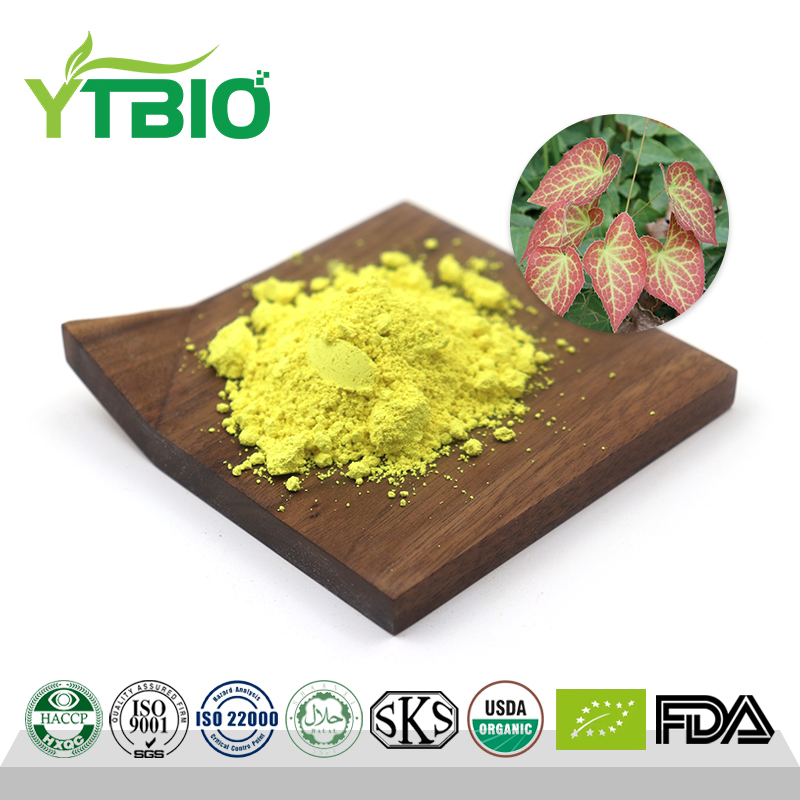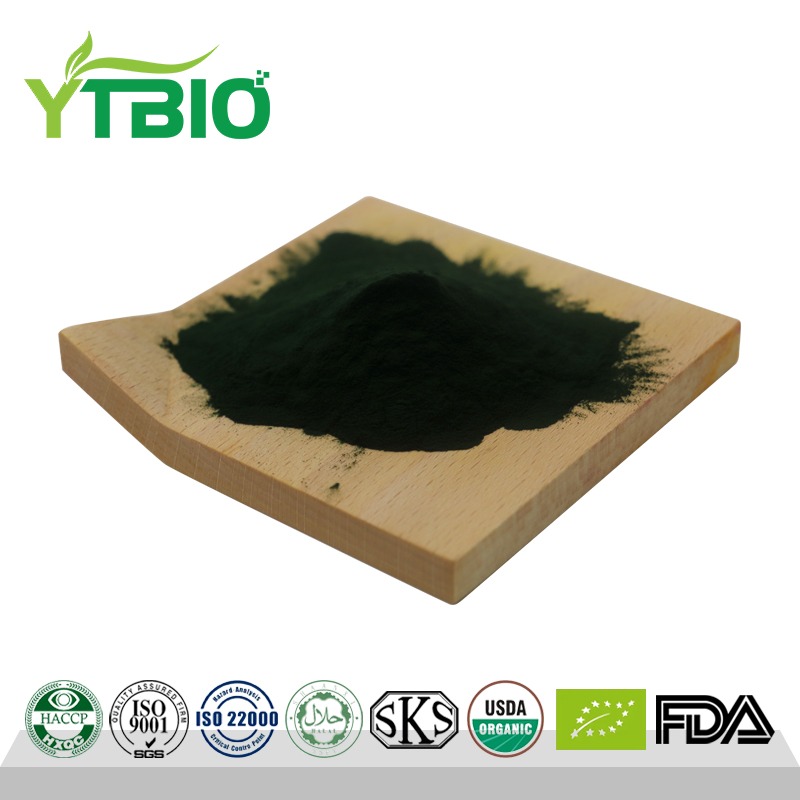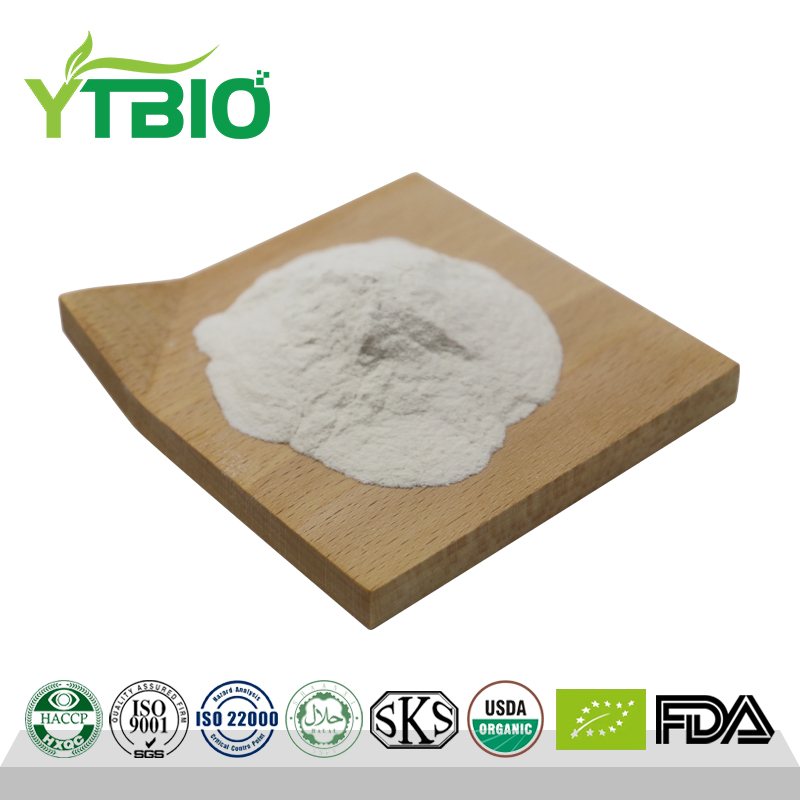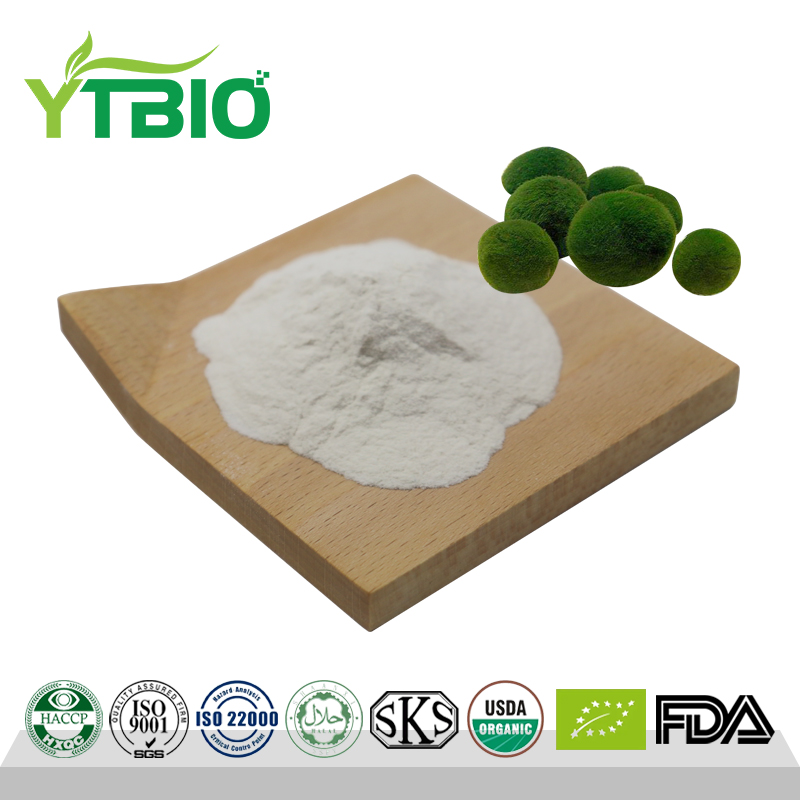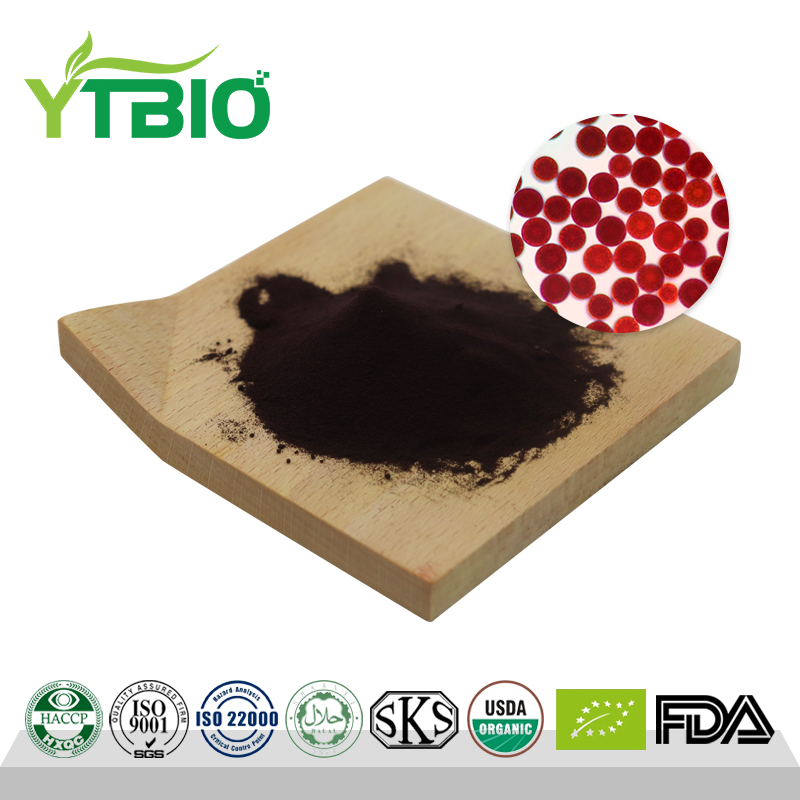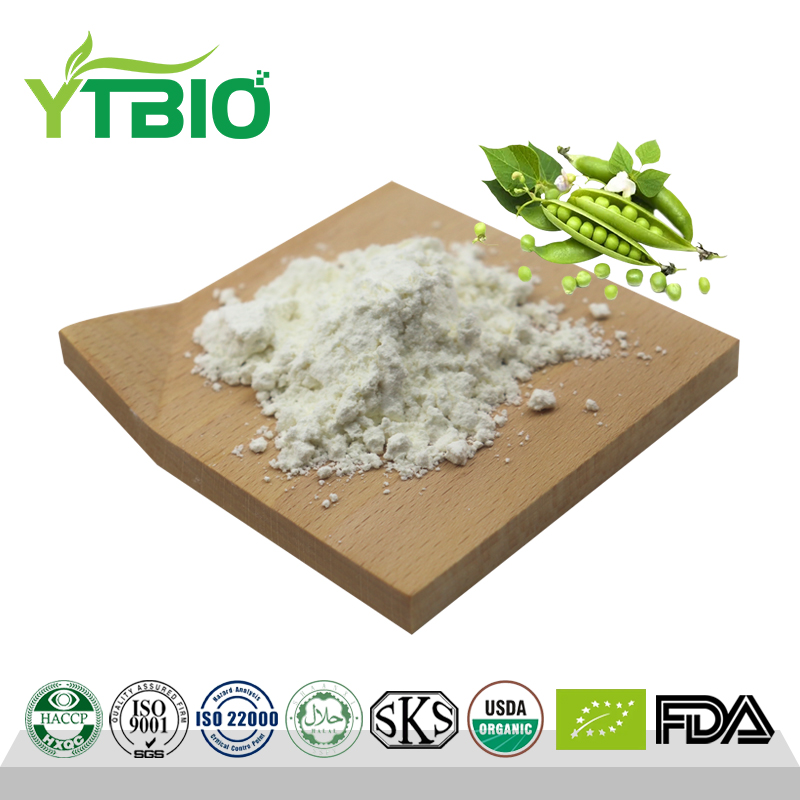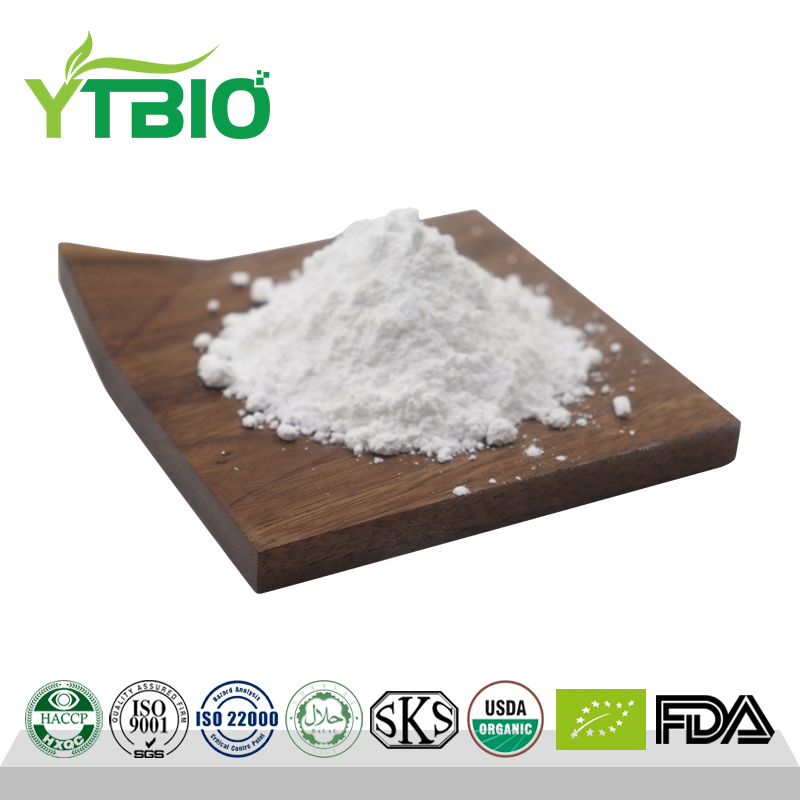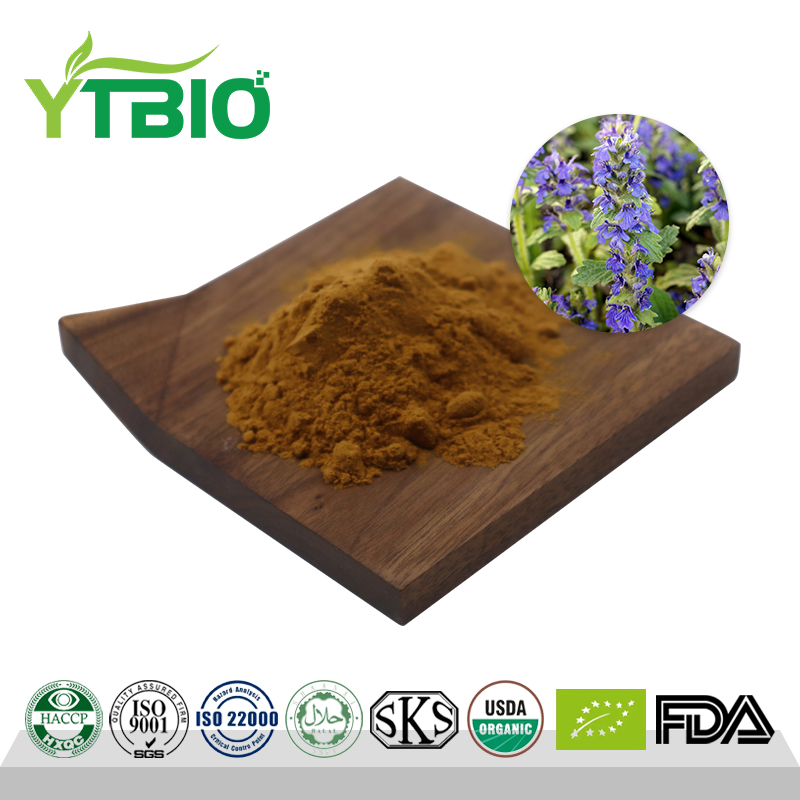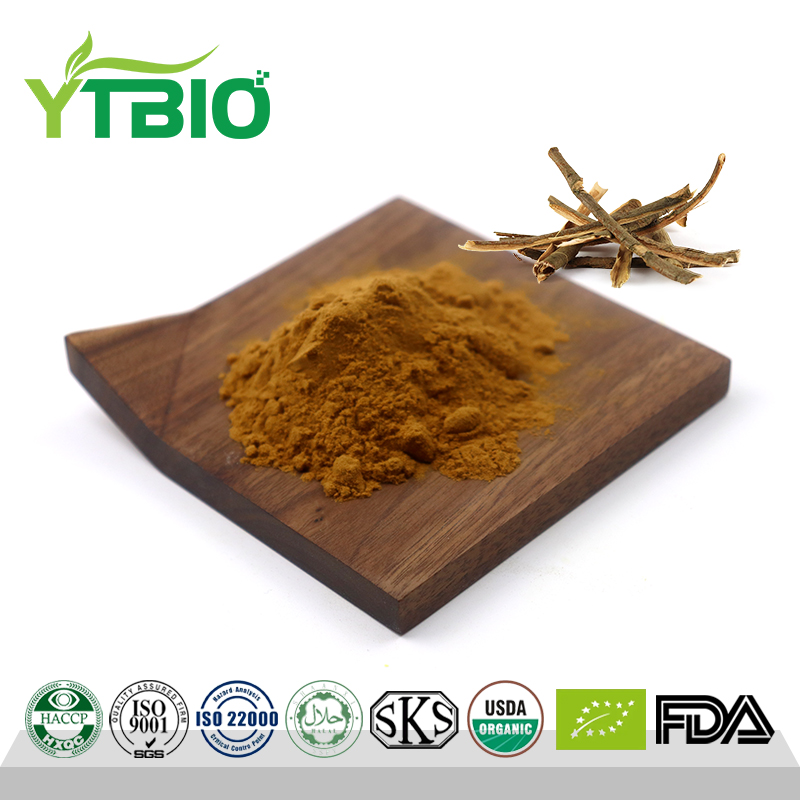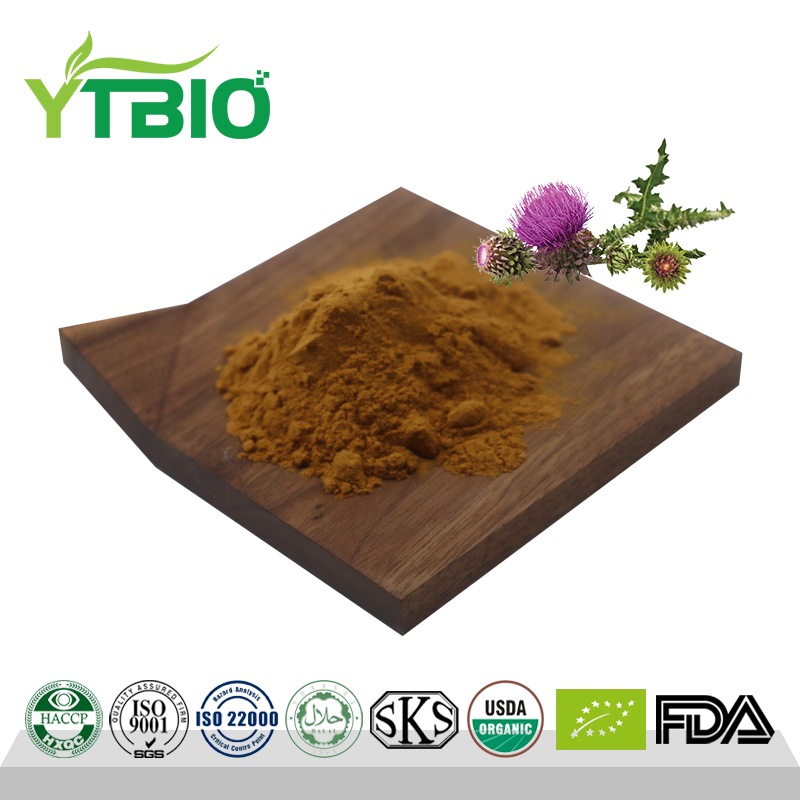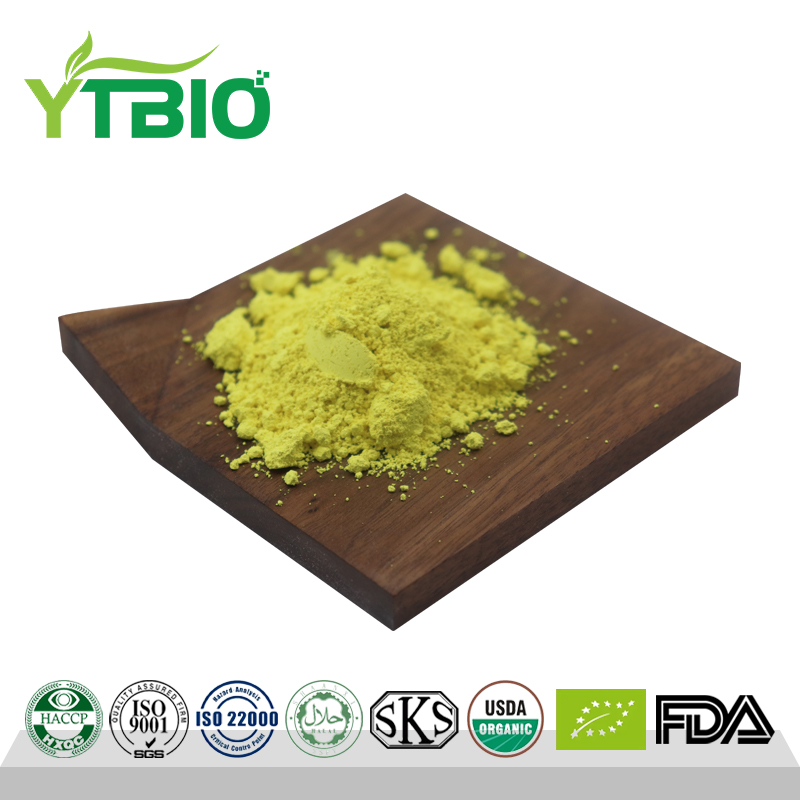117-39-5 Quercetin 95% Powder
What is quercetin?
Quercetin belongs to a group of plant compounds called dietary flavonoids, which are polyphenols that form the basis of many different plant pigments. Quercetin truly stands out among other flavonoids because it has many unique and beneficial biological properties, including anti-inflammatory, antioxidant, anti-aging, and more.
Quercetin, with a melting point of 314°C, is soluble in ethanol, methanol, ethyl acetate, glacial acetic acid, pyridine, acetone, etc., and is insoluble in water, benzene, ether, chloroform, petroleum ether, etc. The alkaline aqueous solution is yellow and almost insoluble in Water, tastes bitter. It has antioxidant properties and can be used as medicine. It has good expectorant and cough-relieving effects, and has a certain antiasthmatic effect. In addition, it has the effects of lowering blood pressure, enhancing capillary resistance, reducing capillary fragility, lowering blood lipids, dilating coronary arteries, and increasing coronary blood flow. It is used to treat chronic bronchitis and also has an auxiliary therapeutic effect on patients with coronary heart disease and hypertension.
Its preparation methods currently include extraction and separation, acid hydrolysis, enzymatic conversion, etc., among which enzymatic conversion is the most practical.
What are the benefits
Quercetin, as the most common flavonoid compound, has a variety of biological activities, can be antioxidant, and plays an important role in the clinical treatment of cardiovascular diseases.
Antioxidant function
Quercetin not only participates in anti-oxidation in vitro and can inhibit oxidative damage to DNA, but also protects tissues from oxidative damage in vivo by reducing the concentration of peroxides in tissues.
Protect cardiovascular
The third major role of quercetin is cardiovascular protection. Mainly reflected in five aspects:
Expand blood vessels and lower blood pressure;
Prevent and treat coronary heart disease: Through animal experiments, it has also been discovered that it can reduce the incidence and mortality of myocardial infarction and lower blood sugar;
Reduce cardiac hypertrophy;
Inhibits the proliferation and hypertrophy of vascular smooth muscle cells;
Anti-thrombotic.
In addition, quercetin also has neuroprotective, anti-inflammatory, and antiviral effects.
Anti-inflammatory effect: When the human immune system fights bacterial invasion, lipopolysaccharide (LPS) can cause the body's immune response and inflammatory response. Some studies have shown that quercetin has an inhibitory effect on the inflammatory response caused by LPS.
Antibacterial effect: Quercetin is also a broad-spectrum antibacterial substance that can be used to prevent and treat various bacterial infectious diseases.
Antiviral effect: Quercetin can fight against a variety of viruses, such as HIV, anti-sarcoma virus, human herpes simplex virus, parainfluenza virus type 3 (Pf-3), and respiratory syncytial virus (RSV).
Application direction
The antioxidant capacity of quercetin is 50 times that of vitamin E and 20 times that of vitamin C. Therefore, it is widely used in the field of health food



